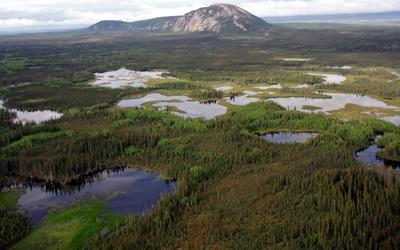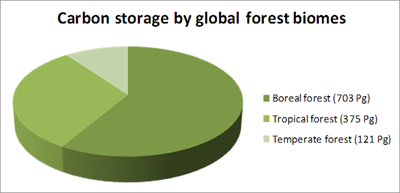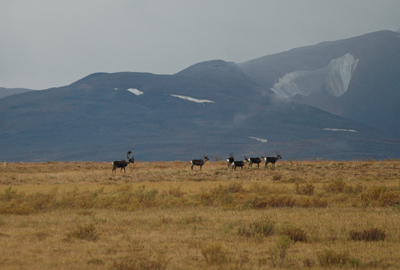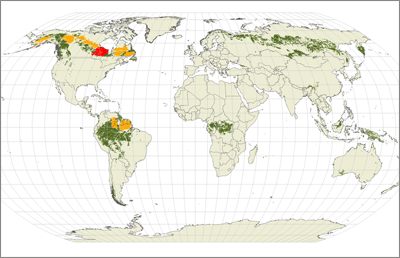Carbon-rich wetlands in the Northwest Territories
Credit: Chad Delany, Ducks Unlimited
Today we are releasing a joint-produced report along with the Canadian Boreal Initiative about climate change and the boreal forest. Being one of the authors, I thought I would share with you some of the more interesting findings. Overall, we report that boreal forests store more carbon than many had previously recognized, even more than tropical forests, and that its overall intactness will be vital in decades to come for many species of plants and animals struggling to adapt to the changing conditions associated with climate change.
The global boreal forest stores at least 703 billion tons of carbon in its trees, peatlands, and soils. It stores nearly twice as much carbon per unit area as tropical forests. Canada's Boreal Forest, my particular interest, was found to store a minimum of 208 billion tons of carbon, though recent studies have indicated these numbers could in fact be two to three times greater. While deforestation currently occurs at higher rates in tropical forests, the boreal forest is still considerably under threat. The amount of land in Canada's Boreal Forest region already impacted by logging, oil and gas extraction, mining, and hydropower is in the hundreds of millions of acres. Projects like the Alberta tar sands destroy large chunks of boreal forest, releasing carbon that has been stored for thousands of years. If projected expansions of tar sands mining occur, the total carbon released through land use change has been estimated at a staggering 238 million tons.
Climate change is already affecting caribou worldwide
Credit: Larry Innes, Canadian Boreal Initiative
But the boreal forest isn't all about carbon. The second part of the report discusses the importance the boreal forest will play for species adapting to the changing conditions brought on by climate change. Because much of Canada's Boreal Forest is still intact, its habitats will play a vital role for species forced to either shift ranges or adapt to new conditions from warmer temperatures. A report earlier this year by the National Audubon Society found that many North American birds have already shifted their wintering grounds further north due to rising temperatures. Species like the Woodland Caribou have seen declining numbers across Canada, and habitat loss from development reduces the ability of the species to adapt to climate change. As temperatures rise, which they are expected to at higher rates in northern Canada than global averages, many species will be forced to both shift ranges and adapt to new circumstances. Maintaining large chunks of intact ecosystems will be the best way to alleviate this burden and allow them to maintain healthy populations.
World's largest intact forests remaining on earth (largest in red, followed by next 9 largest in yellow - green means still largely intact)
Credit: Global Forest Watch
The dual benefits of climate change mitigation and species adaptation place favorable light on conservation as a means to deal with climate change in our boreal forests. To date, most climate-related conservation has been focused on tropical forests, and not without undue reason - rates of deforestation tend to be higher in tropical forests. Rather than attempt to overshadow tropical forests in climate discussions, we should bring the boreal forest forward to share the spotlight with tropical forests, advocating that conservation must be a top priority globally. Only then will we be successful in both limiting climate change and adapting to these new changes our world will face.
![]()
Click the above icon to go the report page. There you will find links to the full report, executive summary, press release, and many other helpful resources.
Here are a couple of the stories written about the report so far (and hopefully more to come!):
-New York Times
-Montreal Gazette (reprinted in a host of Canadian papers)
-Reuters
-TreeHugger
-Mongabay





